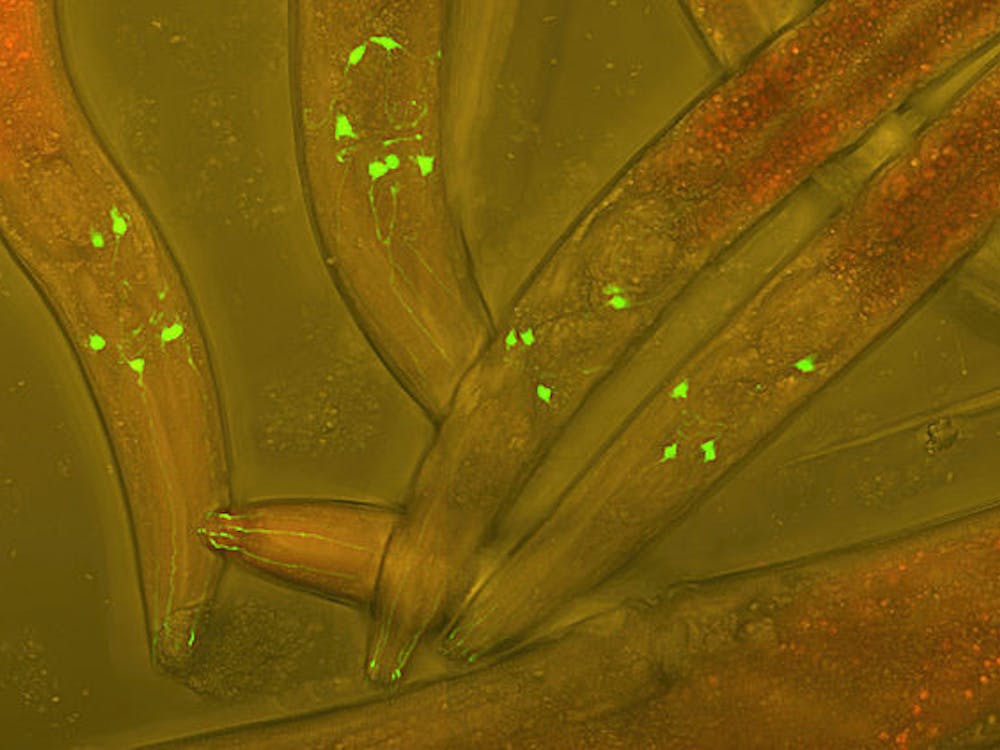As of late, climate issues have become one of science’s hot topics. Solutions ranging from carbon capture technology to unique biofilters continue to be researched. One of the newest potential solutions actually uses one of Earth’s smallest creatures to fix one of its largest problems.
The nitrogen cycle is a vital process of nature in which nitrogen is converted from its atmospheric form as N2 into a more biologically useful form, primarily by symbiotic bacteria. Numerous living organisms require nitrogen in order to produce organic molecules such as amino acids, proteins and nucleic acids in DNA.
Recently microbiologists from the University of Alberta and the University of Vienna analyzed an ammonia-oxidizing microbe named Nitrospira inopinata.
This particular bacteria is especially efficient in oxidizing environmental ammonium. This makes the bacteria a viable remedy in decreasing the amount of problematic ammonium affecting the atmosphere, water and soil.
Biology professor and the co-author of the research paper on N. inopinata spoke to ScienceDaily about the nitrogen cycle’s impact on the planet.
“Humans are now responsible for adding more fixed nitrogen, in the form of ammonium, to the environment than all natural sources combined,” Stein said. “Because of that, the nitrogen cycle has been identified as the most unbalanced biogeochemical cycle on the planet.”
Stein regards nitrogen as a camouflaged beast brought into being by the actions of human beings. The earth’s natural nitrogen cycle has become significantly unbalanced because of the industrial production of fertilizer. People have used Haber-Bosch process which is essentially artificial nitrogen fixation.
The Haber-Bosch process is capable of generating tremendous amounts of fixed nitrogen, or ammonium. Although the process makes fertilizer, the superfluous quantities of ammonium produced as a byproduct have led to dead zones in oceans as well as the greenhouse gas effect.
The apparent ability of the N. inopinata microbe to reduce the effects of ammonium on the environment pushes researchers to look into using it in practical applications. Current possibilities vary from wastewater treatment to the production of better biofilms to drinking water and soil purification, in addition to climate change research.
Dimitri Kits, another N. inopinata researcher stressed the microbe’s role in combating climate change to ScienceDaily.
“An efficient complete ammonia oxidizer, such as Nitrospira inopinata, may produce less nitrous oxide,” Kits said. “By encouraging our microbe to outgrow other, incomplete oxidizers, we may, in turn, reduce their contribution to the greenhouse gas effect. Further investigation is required.”
The results of the research are detailed in a paper titled “Kinetic analysis of a complete nitrifier reveals an oligotrophic lifestyle”, which is published in Nature.
The results aim to show that the microbe is “adapted to slow growth in oligotrophic and dynamic habitats on the basis of a high affinity for ammonia, low maximum rate of ammonia oxidation, high growth yield compared to canonical nitrifiers, and genomic potential for alternative metabolisms.”
Through the extensive studies on N. inopinata by researchers from the two universities, not only is there a chance of repairing an unstable nitrogen cycle, but there is also a chance to slow or repair the damages of global warming resulting from the greenhouse gases emitted from the Haber-Bosch process.
As insignificant as the Nitrospira inopinata microbe might appear, it is capable of accomplishing feats that could drastically benefit the earth.





